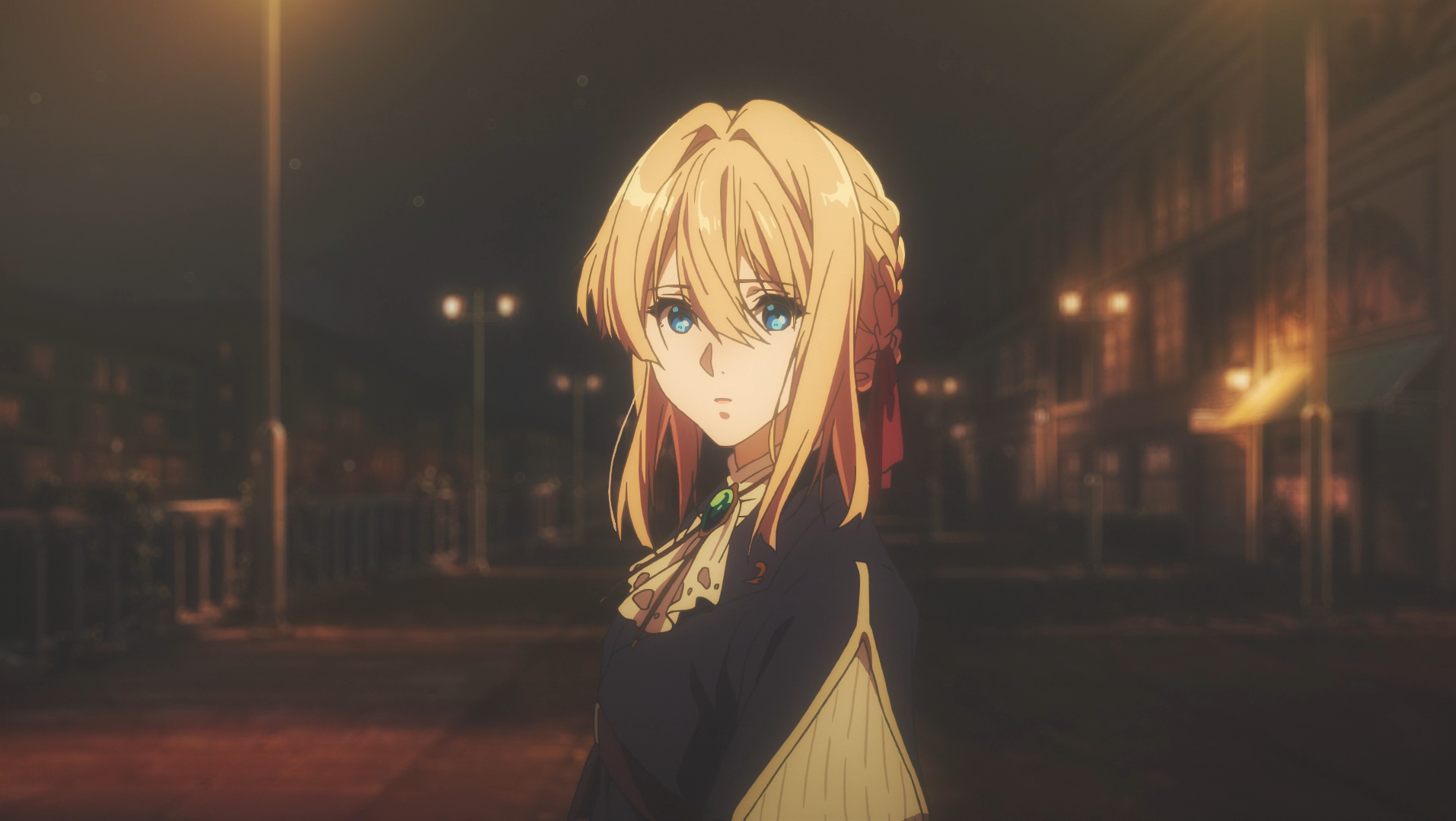Our final thematic post this Holy Week was written by Twwk and originally posted two years ago this past Thursday in the now-discontinued Area of Effect magazine. It is reprinted today by permission.
Leon, a student at Shaher Observatory, is an absolute brat in the anime Violet Evergarden. Despite his good looks and high IQ, he’s disliked by most of his classmates, partly for reasons at first unknown, but his curt words and arrogant attitude contribute to his reputation. When learning that dozens of auto memory dolls, young women who act as ghostwriters, are descending upon the observatory to help make copies of their rare books, he is dismissive. And when he’s assigned to dictate research to Violet Evergarden, he demeans her.
Leon is brought to a pause, though, when she removes her gloves to begin typing. Underneath aren’t the silky hands of a gold-digging maiden, but ones made of chrome-like metal that resemble the Terminator’s skeleton. And Leon soon finds that those hands are so effective at typing, the duo bests the 79 others in how quickly they decode and transcribe.
Violet Evergarden is structured in such a way that most episodes are told through the eyes of a client, all of whom are suffering in some way: a young princess to be married off to a prince she barely knows; a playwright who is haunted by the death of his daughter; a young lady whose brother returned from war with injuries and has become an alcoholic. And in almost every case, though unintentionally, Violet’s disability opens the way for understanding and discussion.
I’ve had a Leon moment before, when my initial assumptions fell flat. As a high school freshman, I remember laughing at a classmate who spoke in a thick accent and wore the same old clothes every day (did I mention I was a brat like Leon, too?). The next year, I was assigned to group work with him and discovered that he showed a biting sense of humor, had an understanding of English language that was every bit as good as my own, and was a mathematical prodigy. He graduated as salutatorian of our class, attended MIT, and earned a Ph.D. in physics. In the course of our years together, he also became my best friend. As my assumptions were challenged and broken by the evidence of a real, breathing person before me, I couldn’t help but respond with admiration and love.
Leon also learns that Violet’s story is deeper than he assumed. She lost both her hands and much of her arms during a war bearing similarities to World War I—though it took place in the show’s steampunk version of 1910 Europe. Violet was a super weapon of sorts during the war and is trying to transition into life as an auto memory doll, no easy feat for a young lady dealing with shell shock and loss; she never learned the intricacies of relationships and language so fundamental to becoming a ghostwriter. As her personality is more like a robot’s than a human’s at the beginning of the show, her reason for becoming a doll reveals her lack of knowledge: she’s seeking to understand what “I love you” means.
Violet’s journey toward understanding that phrase is shaped by her disability. She experiences loss during combat, not only of her limbs and faculties, but of the one person who treated her with love. How could someone be so kind to her, be willing to sacrifice himself for her, despite all her flaws? Violet is left after the war with scars, reminders that she isn’t worthy, that she doesn’t deserve love. No wonder she can’t understand the concept at first! But eventually, Violet does begin to understand it, not by reading a treatise on the subject, but through her clients, like Leon, who also shared their lives, flaws, and pain with her.
After discovering that Violet is an orphan like himself, Leon opens up to her about his past, about the disappearance of his father, and later of his mother. A relationship that began in earnest when Violet unveiled her lost appendages quickly blossoms into something deeper. By the end of the episode, Leon takes her to a dramatic viewing point of a comet, the subject of their first dictation. Through pain, the two connect and Violet moves one step closer toward understanding the nature of love.
Her journey toward finding an answer to her question is a long one. Bit by bit, as Violet meets with others who are suffering as well, she learns more about love and more about herself, until she’s able to confront her past and gain some measure of healing and closure, even if pain still remains. But without sharing her disability with others and receiving a measure of their struggles in return, Violet would never have found her answer and discovered that love is sometimes best expressed in relating to one another through our imperfections; we can’t experience it if we only look skin deep, or if we never share our lives with one another at all.


[…] all starts when we meet a 14-year-old girl who has lost everything: her arms, her master, and the life she once knew. Yet, despite her losses, she clings to the one […]